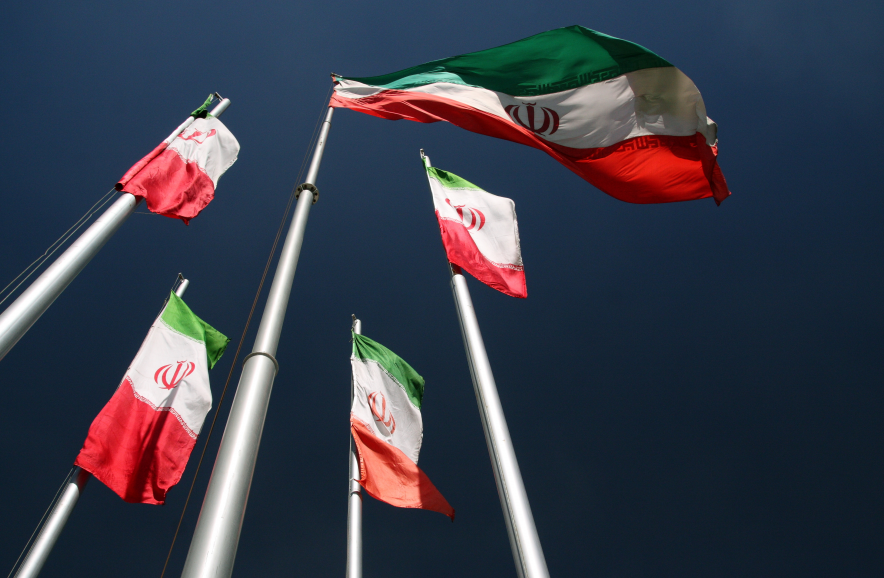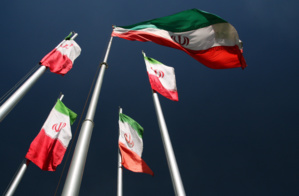The IRGC owns land, sea and air forces of the total number of 120 thousand people. The Corps also holds strategic military stocks. In addition, the IRGC is a gigantic commercial enterprise, which owns ophthalmology clinics, constructs dams, produces automobiles, builds highways, railroads and even the subway. The organization is closely related to the oil and gas industry and is actively promoting its interests in the mining industry.
Third of the country's economy is in IRGC’s hands.
Scope of IRGC activities is hard to imagine: Western media report about it only occasionally. For example, once BBC told about the IRGC’s $ 8 billion-deal on connection of the southeastern port of Chahbahar with the Iranian railway network.
The organization "Khatam-al-Anbiya" ("Seal of the Prophets") is behind this strategic infrastructure development project. Under the noble title, however, lies not a charitable foundation, but the IRGC’s construction holding.
Islamic Revolutionary Guard Corps was established in the late 1980s with the aim of rebuilding the country after the war with Iraq. Patronized by a person from their own ranks - Mahmoud Ahmadinejad, the IRGC managed to significantly strengthen its economic influence in the country.
Currently, according to the most realistic estimates, the corps controls about a third of the country's economy, says Iran expert Bahman Nirumand. "Of course, accurate statistics about this does not exist, but there is a prevailing view, according to which one third of the Iranian economy, and perhaps even more, is in the hands of the Revolutionary Guards", - he explained to DW. According to the World Bank, Iran's GDP was over 425 billion in 2014: so, total volumes of resources controlled by the IRGC has reached 140 billion dollars.
Under theology disguise
However, the Iranian economy is dominated not only by businessmen in uniform, but also by religious organizations, headed by leading Shiite scholars. According to the German Foreign Office’s estimates, such formations control about 80 percent of the country's economy.
Total amount of their income is not known to anyone. They are not required to publish their financial statements or report to any government agency. When billions of dollars disappeared from the state treasury during the reign of Ahmadinejad, many Iranians wondered where the money went. However, they have not received any response, says Bahman Nirumand. No doubts that corruption existed during the reign of the Shah. "However, they were small pickpockets compared with those who are now in power", - the expert believes.
Setad ("The Executive Headquarters of Imam's Directive") - one of the country's largest religious organizations with capital of over 90 billion dollars. According to Reuters, Setad was created by founder of the Islamic Republic, Ayatollah Ruhollah Khomeini in 1989 shortly before his death.
Initially it was conceived as a charitable foundation for management of real estate, which owners had emigrated or were expelled from the country. Proceeds from sale of property had to go to the aid of those in need.
Who will benefit from the lifting of sanctions?
During this time, Setad has become one of the country’s largest conglomerates. According to Reuters, the business empire has been directly subordinating to the spiritual leader of Iran Ayatollah Ali Khamenei since 1989. As the authors of the investigation point out, Setad has assets in all sectors of the Iranian economy - from oil industry to production of contraceptives and breeding of ostriches.
In the last US Sanctions list, the multi-conglomerate Setad was represented by numerous companies. Thus, Washington intended to directly affect the economic interests of the Iranian authorities. After all, according to the US Treasury, Setad is not a harmless fund, but "a giant network of front companies that are engaged in money-laundering on the instructions of the Iranian authorities."
Thus, billion-dollar companies under the control of the elite of the Islamic Republic will, perhaps, benefit from removing of the Western sanctions in the first place. Bachmann Nirumand still hopes that the population will not remain in the loser: "The common people will also take away some benefit from this, because, probably, there will come a revival of the economy. Thereby Iranian businessmen, traders and service sector will benefit from the lifting of sanctions."
source: dw.de
Third of the country's economy is in IRGC’s hands.
Scope of IRGC activities is hard to imagine: Western media report about it only occasionally. For example, once BBC told about the IRGC’s $ 8 billion-deal on connection of the southeastern port of Chahbahar with the Iranian railway network.
The organization "Khatam-al-Anbiya" ("Seal of the Prophets") is behind this strategic infrastructure development project. Under the noble title, however, lies not a charitable foundation, but the IRGC’s construction holding.
Islamic Revolutionary Guard Corps was established in the late 1980s with the aim of rebuilding the country after the war with Iraq. Patronized by a person from their own ranks - Mahmoud Ahmadinejad, the IRGC managed to significantly strengthen its economic influence in the country.
Currently, according to the most realistic estimates, the corps controls about a third of the country's economy, says Iran expert Bahman Nirumand. "Of course, accurate statistics about this does not exist, but there is a prevailing view, according to which one third of the Iranian economy, and perhaps even more, is in the hands of the Revolutionary Guards", - he explained to DW. According to the World Bank, Iran's GDP was over 425 billion in 2014: so, total volumes of resources controlled by the IRGC has reached 140 billion dollars.
Under theology disguise
However, the Iranian economy is dominated not only by businessmen in uniform, but also by religious organizations, headed by leading Shiite scholars. According to the German Foreign Office’s estimates, such formations control about 80 percent of the country's economy.
Total amount of their income is not known to anyone. They are not required to publish their financial statements or report to any government agency. When billions of dollars disappeared from the state treasury during the reign of Ahmadinejad, many Iranians wondered where the money went. However, they have not received any response, says Bahman Nirumand. No doubts that corruption existed during the reign of the Shah. "However, they were small pickpockets compared with those who are now in power", - the expert believes.
Setad ("The Executive Headquarters of Imam's Directive") - one of the country's largest religious organizations with capital of over 90 billion dollars. According to Reuters, Setad was created by founder of the Islamic Republic, Ayatollah Ruhollah Khomeini in 1989 shortly before his death.
Initially it was conceived as a charitable foundation for management of real estate, which owners had emigrated or were expelled from the country. Proceeds from sale of property had to go to the aid of those in need.
Who will benefit from the lifting of sanctions?
During this time, Setad has become one of the country’s largest conglomerates. According to Reuters, the business empire has been directly subordinating to the spiritual leader of Iran Ayatollah Ali Khamenei since 1989. As the authors of the investigation point out, Setad has assets in all sectors of the Iranian economy - from oil industry to production of contraceptives and breeding of ostriches.
In the last US Sanctions list, the multi-conglomerate Setad was represented by numerous companies. Thus, Washington intended to directly affect the economic interests of the Iranian authorities. After all, according to the US Treasury, Setad is not a harmless fund, but "a giant network of front companies that are engaged in money-laundering on the instructions of the Iranian authorities."
Thus, billion-dollar companies under the control of the elite of the Islamic Republic will, perhaps, benefit from removing of the Western sanctions in the first place. Bachmann Nirumand still hopes that the population will not remain in the loser: "The common people will also take away some benefit from this, because, probably, there will come a revival of the economy. Thereby Iranian businessmen, traders and service sector will benefit from the lifting of sanctions."
source: dw.de






